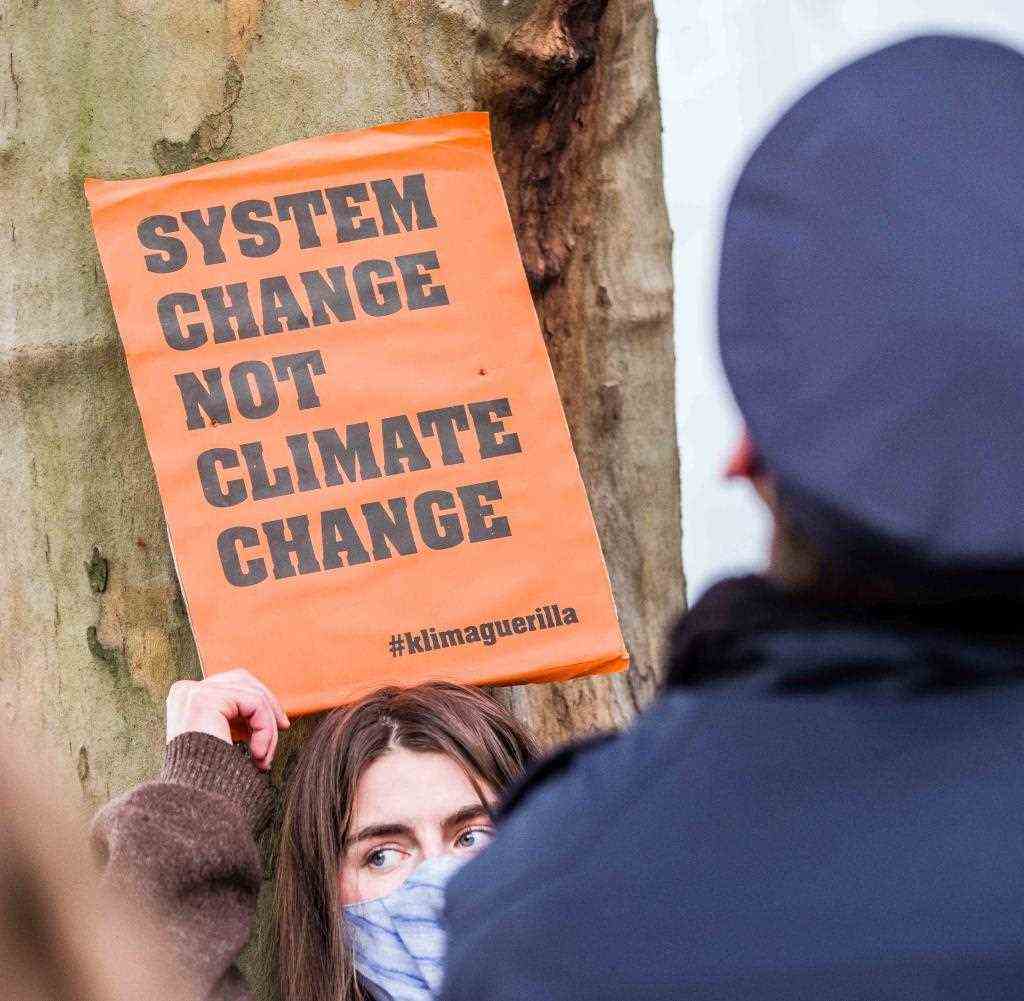What is brewing there can lead to a “very big generation conflict”


Source: Getty Images / Image Source
For young people between the ages of 14 and 29, fear of the pension gap is almost as great as fear of climate change, according to a study. The researchers warn of a worrying development that is based on “structural overburdening” of young people.
Klaus Hurrelmann is something like the pope of German youth researchers, the co-author of the Shell youth study has had his ear on the pulse of the next generation for years. Also with the one developed by futurologist Simon Schnetzer Trend study “Youth in Germany” Hurrelmann is on board as a co-author. But what this representative survey of the roughly “Generation Z” age group of 14 to 29 year olds revealed, amazed even him.
After climate change (56 percent), the biggest concerns of the 1,014 adolescents and young adults surveyed are the collapse of the pension system (48 percent) and increasing inflation (46 percent). The majority consider the most important task of politics to be securing pensions for the young generation. Only then do we ensure a future worth living in and the digitization of education.
Youth researcher Klaus Hurrelmann
Source: picture alliance / dpa / dpa-Zentral
“We know that this young generation is aware that the traditional pension system is being phased out and that they have to do something themselves. But the fact that it has such a high ranking compared to the other topics is new to me, ”said Hurrelmann. He finds it unusual that young people think about what to expect in 30 or 40 years from the start of their working life: “It is remarkable how future-oriented young women and men are already behaving today.”
For politicians this is a mandate to approach young people and create the framework for new old-age security. “For a young person this is structurally overwhelming – similar to the big issue of climate change.” Something is brewing here that has the potential of a “very big generation conflict”, added Schnetzer.
These issues are important to young people
As a mega-topic, climate change is very much present among young people. But only a minority is as strict and puritanical as the protagonists of the Fridays for Future movement. Broken down to their own living environment, the majority practice compromises.
The topic of plastic avoidance has a very high approval rating. 40 percent can also imagine buying used goods in any case and a further 43 percent perhaps.
Source: WORLD infographic
It looks similar when buying fair trade and organic products and food. However, the majority cannot imagine consistently doing without their own car. And only 27 percent want to consistently forego air travel in the future. 34 percent ticked a “maybe” here. “Overall, there is no evidence of a mental breakthrough in sustainable environmental protection among the younger generation,” it says. “Old habits and a traditional understanding of prosperity seem to be very tight.”
On the other hand, there is a lot of exercise when it comes to nutrition. 56 percent state that they still eat everything without restrictions. The rest of the young people, however, experiment with alternative diets and eat vegetarian, vegan or concentrate on fish instead of meat.
“They often have to enforce their alternative eating habits against their own mothers and fathers,” the study says. Meat abstinence correlates with gender and level of education: University graduates are more likely to forego meat than secondary school graduates.
Source: WORLD infographic
With 16 percent, the largest group of alternative eaters are the flexitarians: They do without meat, but sometimes make an exception. A pragmatic behavior that is also evident in other areas, for example when using environmentally friendly means of transport or buying vintage clothes. Schnetzer and Hurrelmann conclude that there is a fundamental willingness to experiment and potentially change familiar behavior.
As in their survey a year ago, they asked the adolescents and young adults about their experience of the corona pandemic. Compared to the survey in May 2021, the mood in the survey period in mid-October 2021 and after the great freedom of summer was already a little brighter. But 40 percent still complain about limited mental health and 37 about the feeling of not being able to control their own life.
“The young generation is still not over the top,” warn the authors – especially since new restrictions could arise in winter. More than 60 percent of those questioned therefore still adhere to hygiene rules and make sure to behave considerately. But only a minority of 40 percent want to do without parties.
The vaccination rate is high among 14 to 29 year olds: 69 percent are already completely vaccinated and another nine percent are partially vaccinated. But only 35 percent state that in the current situation they feel as free again to live their life as they imagine.








